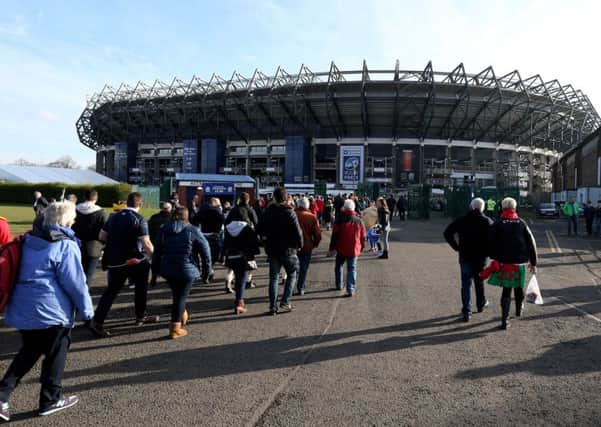Inspectors find mouse droppings at Murrayfield


A catalogue of food safety breaches were uncovered at the catering facilities for Murrayfield’s hospitality suites.
They included dirty work surfaces, contamination risks, a lack of running water and food being stored on the floor.
Advertisement
Hide AdAdvertisement
Hide AdMouse droppings were found on shelves where food is stored, in the plate warming cupboard and on cardboard boxes kept in the kitchens. Inspectors also found a number of holes in the walls and floors of the stadium in Edinburgh which would allow rodents to get into food preparation areas.
The damning report from the environmental team at Edinburgh City Council also revealed kitchen staff risked contaminating food by storing both raw and ready-to-eat food in the wrong place and left paper towels out of their dispensers.
In the report, a food safety enforcement officer noted: “There were a number of mouse accessible holes in the floors and walls.
“Mouse droppings were found on the floor at the wall junctions, on low level shelves and in the plate warming cupboard. A few mouse droppings were found on low level shelving next to cooking equipment, disposables and where some food was found.”
Stadium officials were told: “Deep clean and disinfect all areas where mouse droppings were found. Dispose of any food and disposables in contact with mouse droppings.
“Obtain advice from your pest contractor to pest proof the premises and prevent further access to mice.”
Murrayfield’s facilities are popular with corporate clients during Scotland internationals and rock concerts by artists such as the Foo Fighters and One Direction. Hospitality packages cost up to £1,000 per person.
Their hospitality is known as the Murrayfield Experience and offers customers “five-star food and fine wines”.
Advertisement
Hide AdAdvertisement
Hide AdThis spring the stadium will play host to two matches in Scotland’s Six Nations campaign. The inspection was carried out in August but only now been made public through freedom of information laws.
The issues were resolved by the time the council made a follow-up visit the following month.